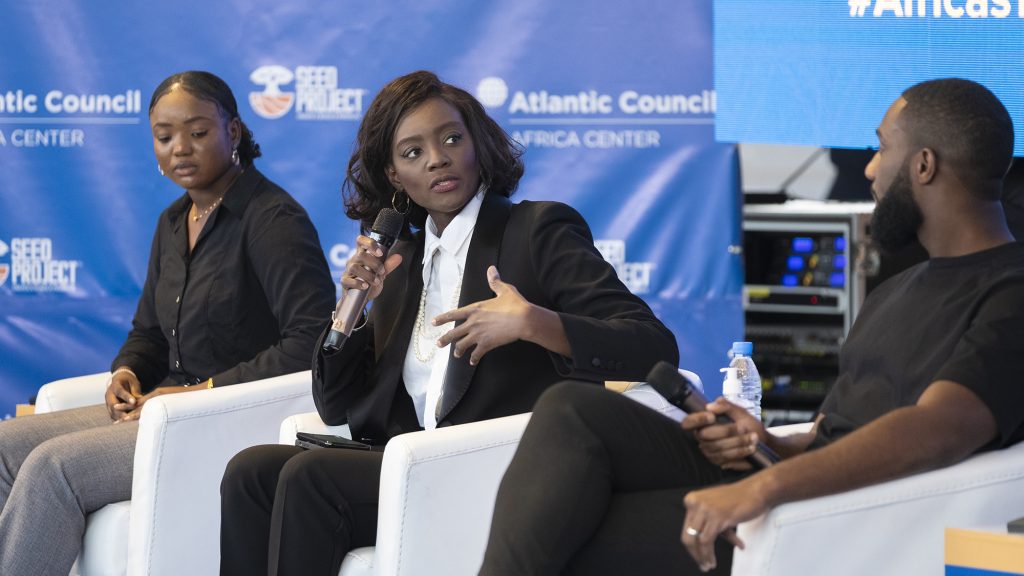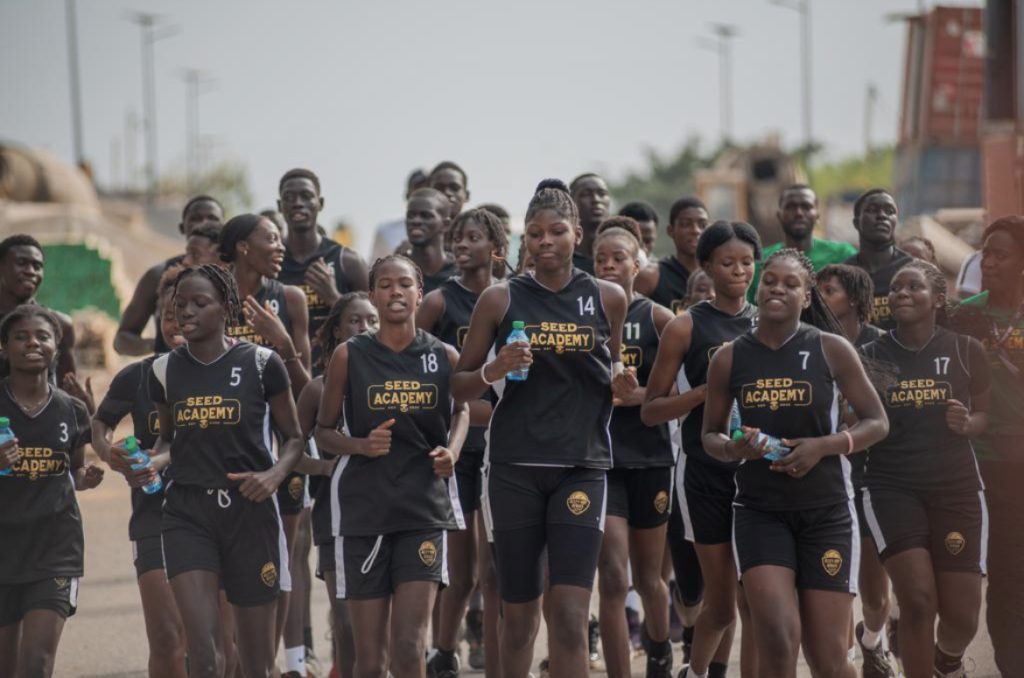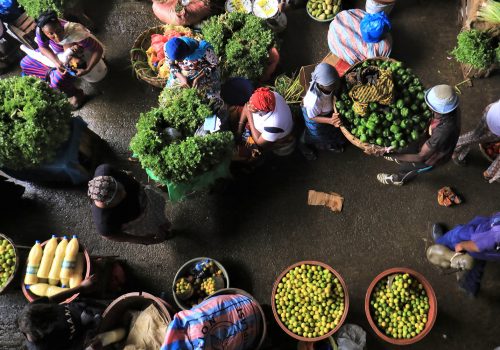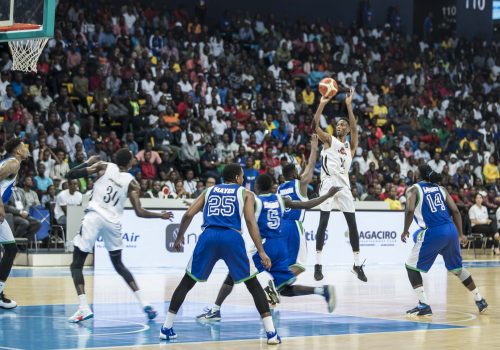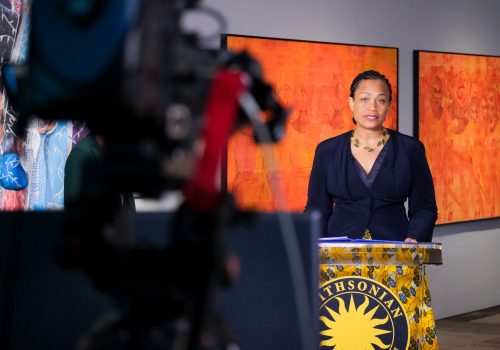Watch the full event
March Madness won’t be the only hoops highlight this month; the Basketball Africa League’s second season officially tipped off, attracting viewers globally.
“The world will see the quality of professional basketball that is being played here” in Africa, said Mark Tatum, deputy commissioner and chief operating officer of the National Basketball Association. Tatum was speaking at the Atlantic Council Africa Center’s March 4 Sports Business Forum, held in Dakar, Senegal, and cohosted by the SEED Project. “There is a tremendous opportunity to continue to invest in this game, in this sport, [and] in this league to drive economic opportunity” across Africa, he said.
Amadou Gallo Fall, president of the Basketball Africa League and founder of the SEED Project, called Africa the “center of the Earth” for talent in sports and creative industries. Sports can serve as “an economic growth engine” for the continent, he said. Senegalese Sports Minister Matar Ba praised sport as an “economic tool” that boosts the economy, but also benefits other sectors including “health/well-being, education, social inclusion, and youth and women’s empowerment.” Barbadian Prime Minister Mia Mottley—whose country boasts a large population of African descent and has seen economic benefits from promoting cricket—hailed Africa’s athletic and economic potential, saying that the continent has “the ability to create opportunities for so many” through excellence in sport.
The event also gathered leaders in Africa’s sports and tourism industries such as NBA legend Dikembe Mutombo; Pape Mahawa Diouf, chief executive officer of the Senegalese Agency of Tourism Promotion; Samba Bathily, chief executive officer and founder of the ADS Group; and Victor Williams, chief executive officer of NBA Africa. The gathering was sponsored by Orange, the Attorney General Alliance (AGA), the Senegalese Agency of Tourism Promotion, and the SEED Project.
Here are other highlights, covering everything from optimizing talent to fostering inclusion, from the Sports Business Forum:
Investment to fuel a generation
- Fall pointed to African-born Hall of Famers Mutombo and Hakeem Olajuwon as pillars of success but noted that they came to basketball almost by accident—Mutombo after going to Georgetown University intending to become a doctor and Olajuwon after excelling in soccer and handball. Through the SEED Project, an organization that mentors student-athletes and hosts a basketball academy for young people, Fall hopes to be “more intentional in creating a pathway for young people to not just stumble into sport.” But in the meantime, he asked, “how much talent are we missing?”
- Mutombo agreed that there is a need for a pathway into sports excellence in Africa, adding that, with basketball growing across the continent, he thinks “young people [in Africa] have a bright future—if we can work very hard to keep them here.”
- Tatum noted that even with programs to make basketball more accessible across Africa, “we believe that we’re just scratching the surface right now of the impact that the game can have on the world’s youngest and fastest-growing populations.”
- Investing in young people is important, as “youth [are] our biggest asset” as drivers of development, Fall said. Mottley pointed out that youth “can create opportunities for their families for economic pursuit.” And by staying on the continent, Mottley said, athletes can expand opportunities well beyond their families, for professions that are necessary for the sports ecosystem to thrive, like nutritionists and personal trainers.
- To boost that investment, Ba urged the private sector to get involved in funding the effort to grow Africa’s sports industry. He explained how Senegal is not only encouraging athletes, but also setting up the infrastructure needed to support a sports industry, which will require cultivating the tourism and creative industries.
- Diouf highlighted how governments across Africa have drawn in public and private investments by creating supportive policies and institutions. He noted that developments in the tourism industry, like the range of hotels and public transportation options, have played a part developing the sports industry, helping to attract major investments—such as those behind Senegal’s new fifty-thousand-seat Abdoulaye Wade Stadium—and attention from global sports brands. Diouf said that these two industries coming together is key to Senegal’s hopes for a transformation to become a “great nation of sport, culture, and tourism.”
- Markus Green, who is a board member of the AGA—which trains lawyers, judges, and prosecutors globally—said it is critical for nations to also build their legal framework in order to host thriving sports businesses. “In order for an entity like the NBA to come into a country like Senegal, you have to have a working system of laws, a working system of regulations, and a justice system that works. So that if there is a dispute, that entity can feel comfortable knowing they can get a reliable outcome. All of those things are tied to sport, the business of sport.”
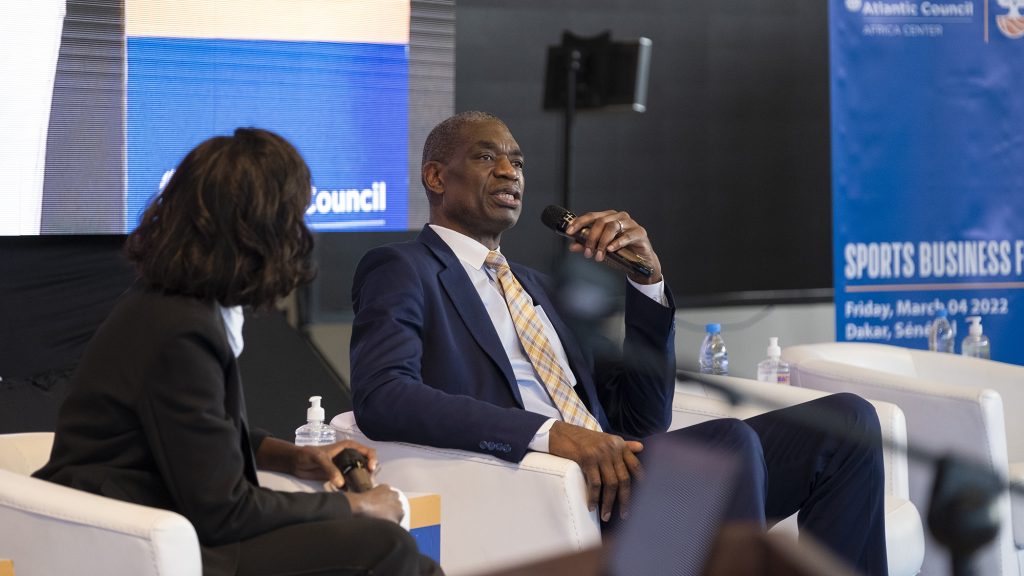
Growing future leaders
- Green encouraged the audience to think about the growth of sports business as more than a reflection of Africa’s changing economics, but also its changing culture. “It’s about using the voice of sport and the platform of sport to push ideas and to push change,” he said. “We saw this in the US with Black Lives Matter. You saw the athletes and their impact on social change—that’s sustainability. Think about sport beyond only the game. Think about how it can be used as a vehicle of change.”
- Sports could serve as a vehicle “to build bridges between Africa and the Caribbean,” Mottley said, adding that she’d like to see young people across the Atlantic “engage with one another, play with one another, and make those bonds that will make lifelong friends.”
- Sports are “also an incredible tool to speak to young people,” Fall said. Mottley agreed, saying that the greatest athletes and artists are “global citizens” who “inspire all, irrespective of race, class, and age.”
- Mutombo credited basketball with forming powerful and influential athletes, saying that basketball players “have a chance and the power to change our community, to touch our people, in the way other athletes cannot,” because of their global fame. “Each one of us, we have a moral duty to do something” to keep youth on track in their education and growth, he said.
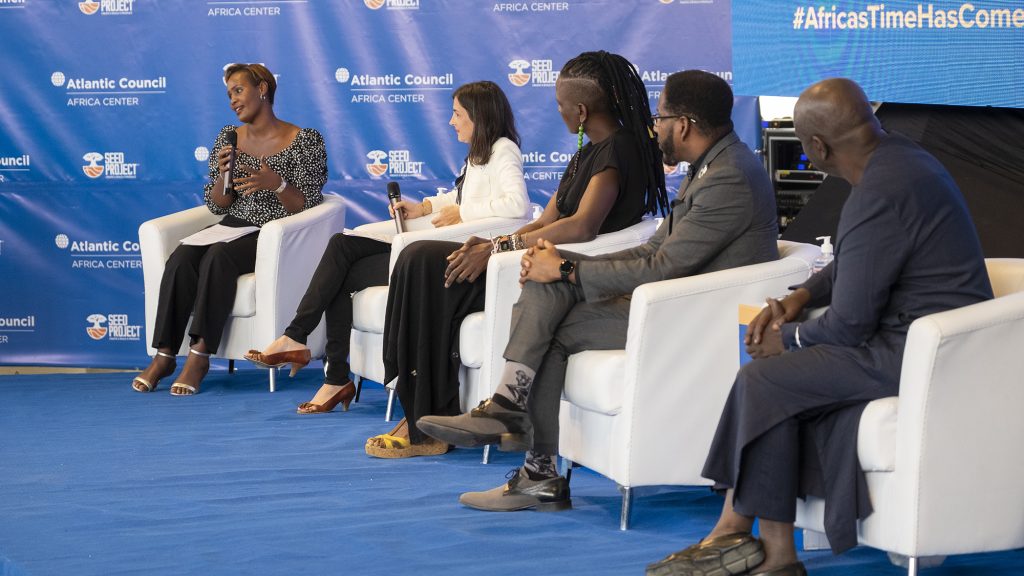
Breaking the gender barrier
- Fall said that it will be important to not only improve accessibility to sports like basketball, but to make sure that “young boys and girls who have a passion for the sport [have] an opportunity to participate.” Spotlighting top female athletes, managers, and coaches—like Australian Liz Mills, the first woman to coach a team in the Basketball Africa League—will help in “showing the next generation that it’s possible,” he said.
- Mottley, too, noted the “disparity between the conditions of pay and conditions of service for men and women” in sport, citing the example of Barbados’s globally renowned cricket teams. She referred to the difference in quality of television broadcasting coverage between women’s and men’s sports. “The disparity is too great…” she said, “and I hope that as we go forward, that disparity will be removed from the exercise of sports.”
Watch the full event
Further reading
Tue, May 25, 2021
Africa is America’s greatest geopolitical opportunity. Does the US know it?
AfricaSource By Rama Yade
Biden can further build ties with Africa: He should do so not only because these countries have long been underrepresented within leading multilateral organizations, but also because they offer innovative solutions to global challenges including terrorism, climate change, migration, debt, and COVID-19.
Tue, May 11, 2021
The Basketball Africa League has arrived: Here’s why it matters
AfricaSource By
With the Basketball Africa League set to launch, the Atlantic Council’s Africa Center reached out to sports stakeholders across the BAL’s inaugural countries to hear their perspective on why the BAL represents a historic moment. Their feedback provides a compelling case for the developmental, diplomatic, and economic potential of African basketball.
Mon, Oct 18, 2021
Africa’s cultural revolution is here. Meet some of its movers and shakers.
New Atlanticist By Katherine Walla
The Atlantic Council brought together Africa’s brightest cultural minds—and the policymakers who’ve helped make their achievements possible—to understand Africa's cultural revolution and rising soft power.
Image: Bigue Ndiaye, Rama Yade, and Seydou Bocar Seck speak at the Atlantic Council Africa Center's Sports Business Forum on March 4, 2022 in Dakar, Senegal. Photo via Veneti Production.
